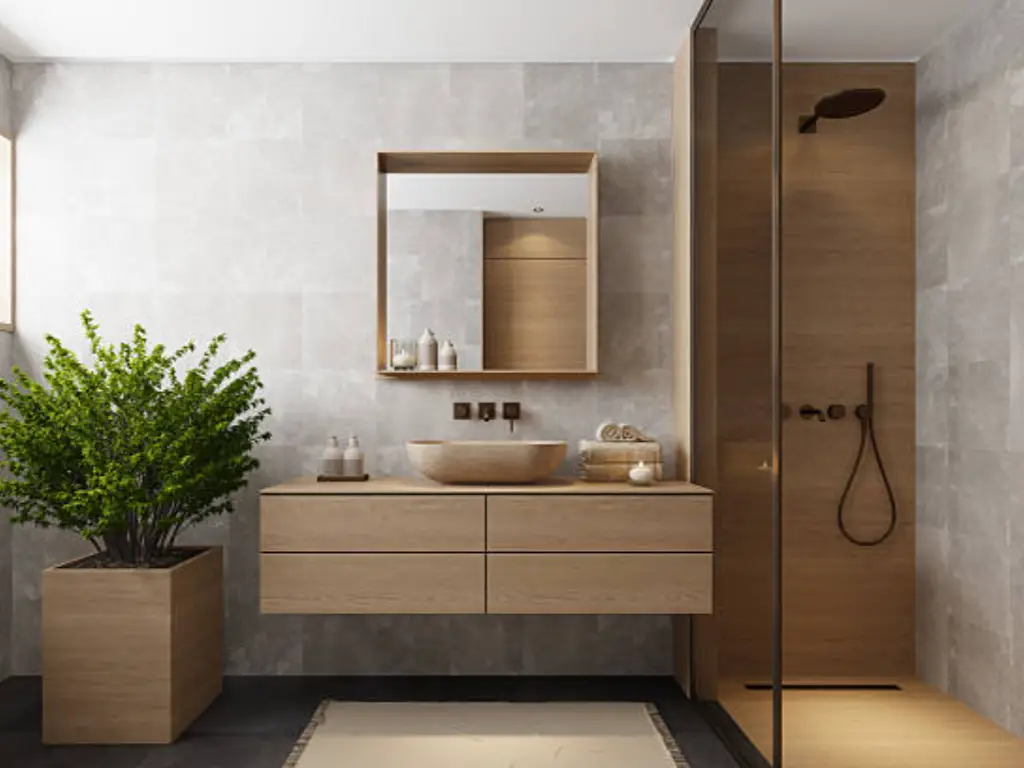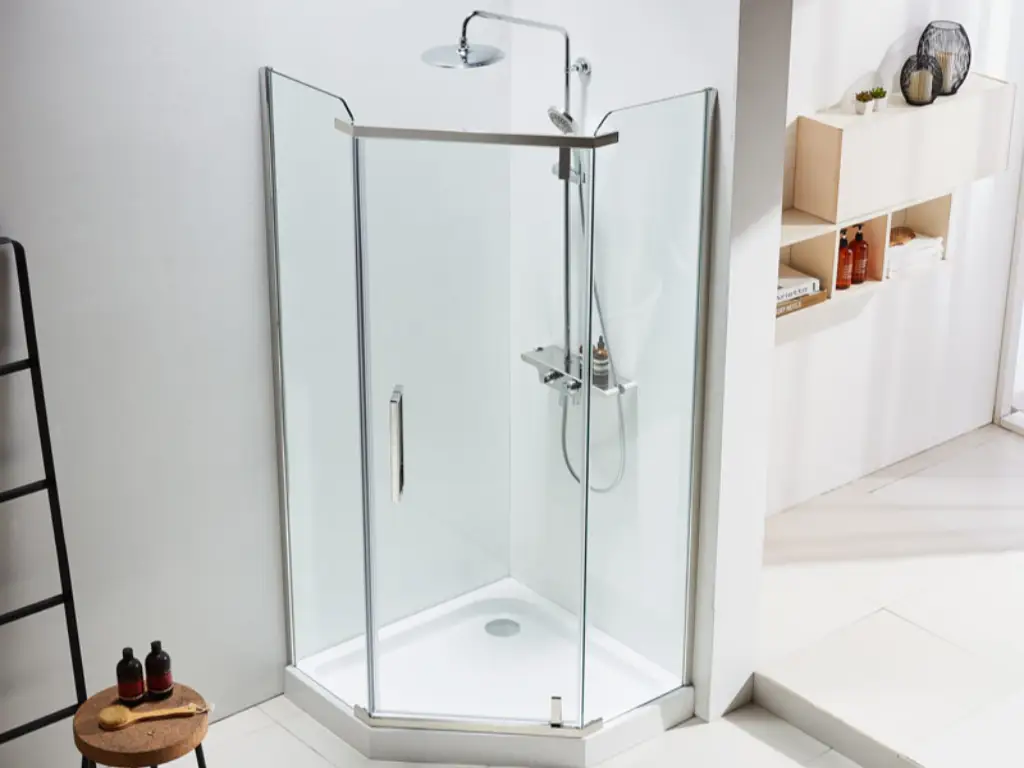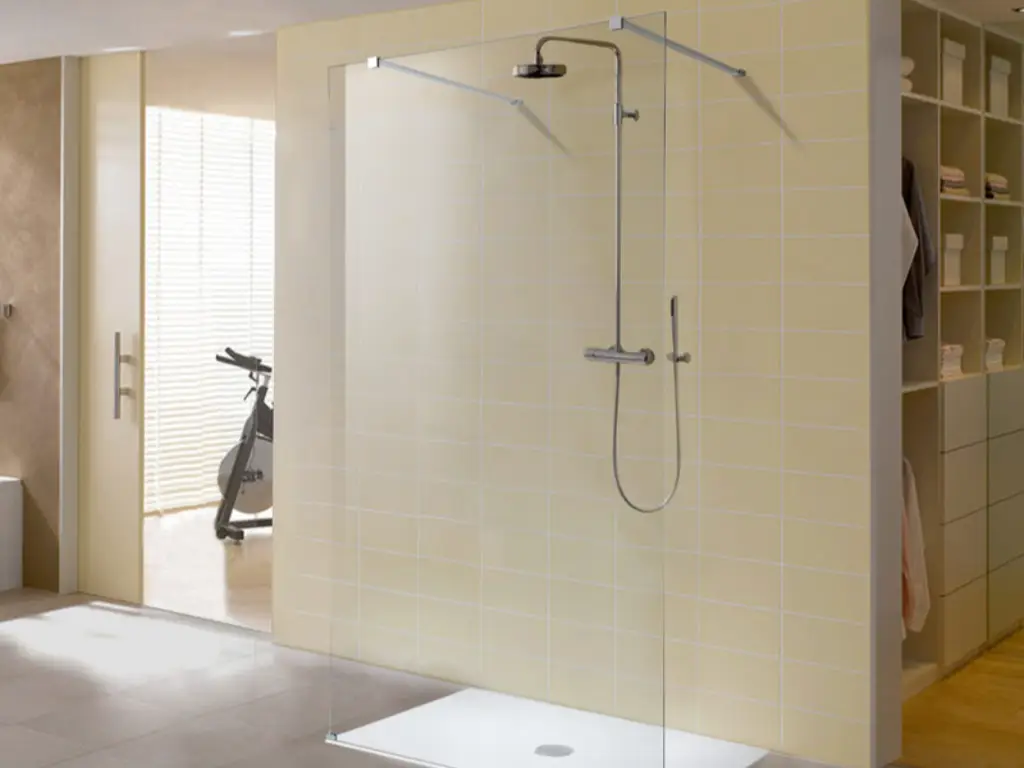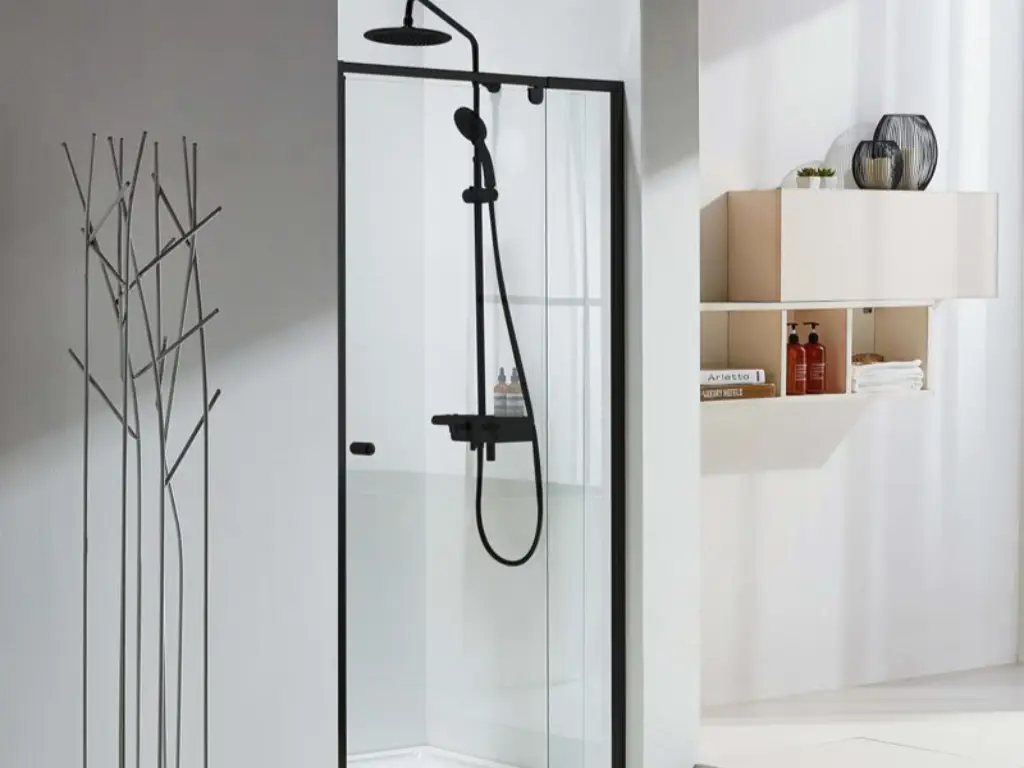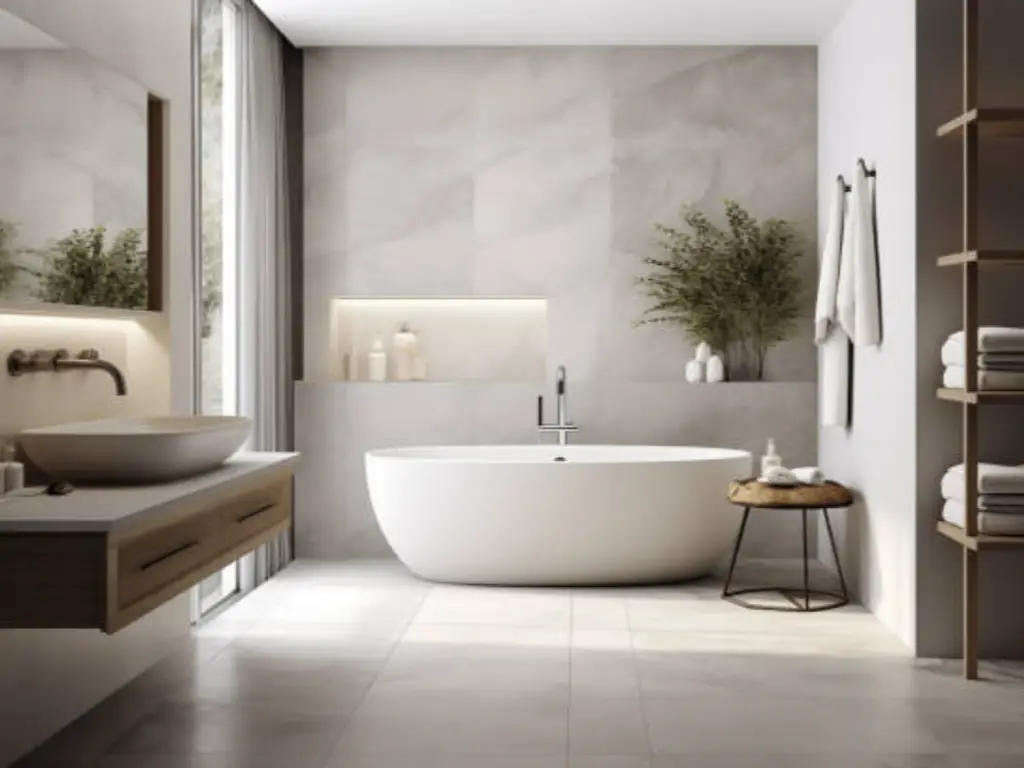The shower tray material you choose plays a huge role in the tray’s durability, appearance, and overall performance. But with so many options out there, how do you know which one is the best? Let’s dive into the six best type of shower tray materials, breaking down their pros and cons, so you can make an informed decision. Whether you’re renovating your bathroom or just curious about what’s out there, this guide will walk you through everything you need to know about shower tray material types.
Need One-Stop Sanitary Solutions for Your Project?
Full-suite packages: Shower Enclosures, Trays, Wall Panels & Bathtubs. Standardized for Easy Installation. We support phased delivery by building to match your schedule.
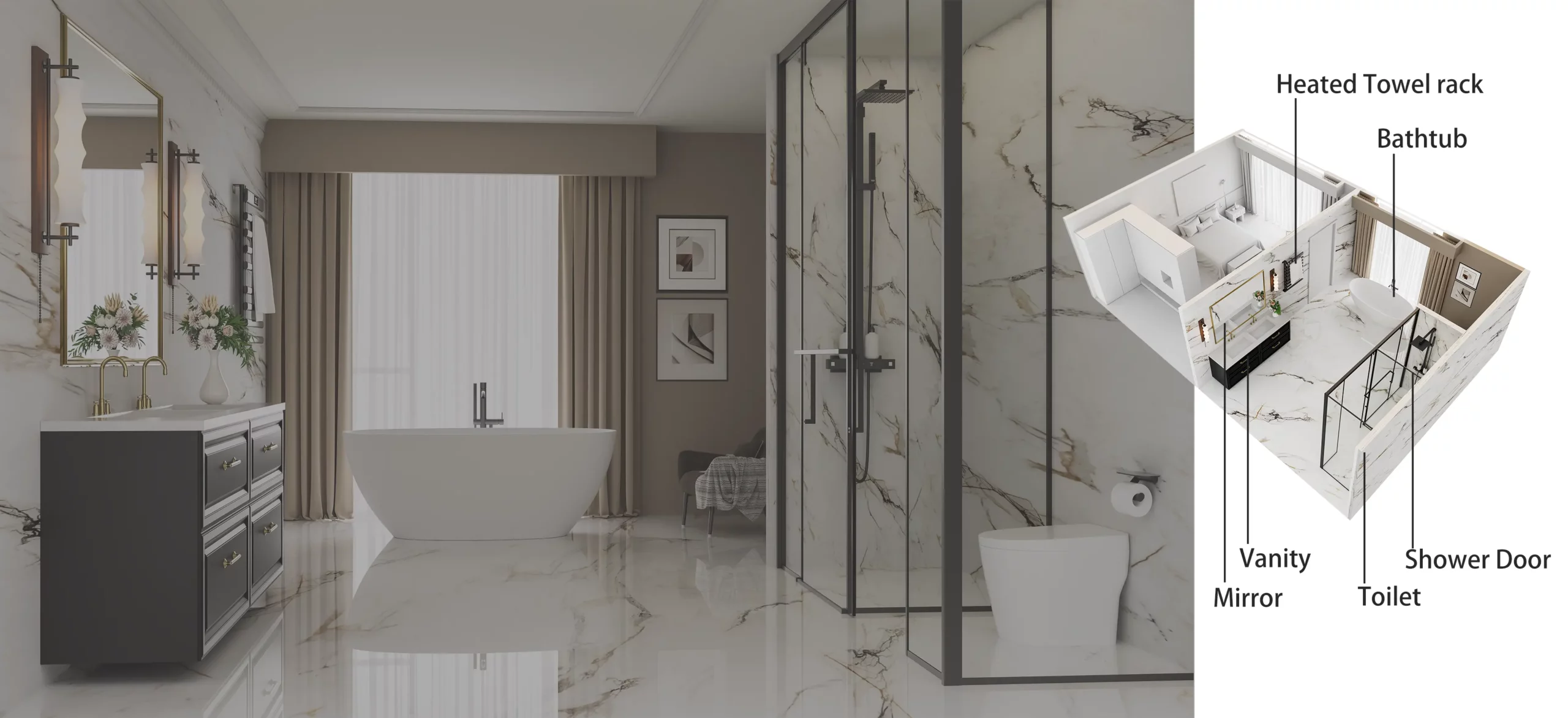
Acrylic Shower Trays
Acrylic shower trays are one of the best types of shower tray materials in many modern bathrooms. They’re lightweight, easy to install, and come in a variety of shapes and sizes. But, as with anything, they have their pros and cons.
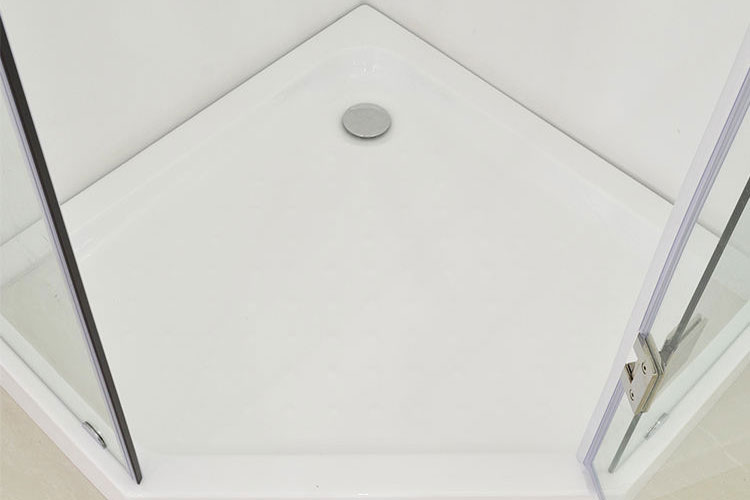
Advantages
- Lightweight: Acrylic trays are incredibly lightweight because they are made from a plastic-based material, making them easy to handle and install without the need for heavy lifting or additional support structures. This is especially helpful during DIY projects or when installing in upper-floor bathrooms where minimizing weight is crucial.
- Versatile: These trays come in almost any shape or size you can think of, and can be molded into different colors, allowing you to match your bathroom’s aesthetic perfectly. Whether you have a compact shower space or a large, luxurious one, acrylic can be customized to fit your needs.
- Warm to the touch: Acrylic naturally retains heat, making the surface warm and comfortable, particularly for those who dislike the shock of stepping onto a cold surface in the morning. This property adds a touch of comfort to your daily routine.
- Non-porous: The non-porous nature of acrylic means it doesn’t absorb water or stains, which prevents the growth of mold and mildew, making cleaning quick and easy. This also extends the tray’s lifespan by preventing water damage.
Disadvantages
- Prone to scratches and dents: While acrylic is durable, it’s not the toughest material because it lacks the hardness of stone or metal, making it more susceptible to scratches and dents, especially if heavy objects are dropped on it or if abrasive cleaners are used.
- Discoloration over time: Acrylic trays can discolor over time, particularly when exposed to harsh cleaning chemicals or direct sunlight. The material can fade or yellow, affecting the overall look of your bathroom.
- Noisy: Acrylic trays can amplify the sound of water hitting the surface because of their relatively thin structure, which doesn’t absorb sound as effectively as thicker materials. This might be a concern if you prefer a quieter, more serene shower experience.
SMC Shower Trays
SMC, or Sheet Molding Compound, is another best shower tray material. This material is made from a mixture of polyester resin, glass fibers, and other fillers, making it tough and reliable.
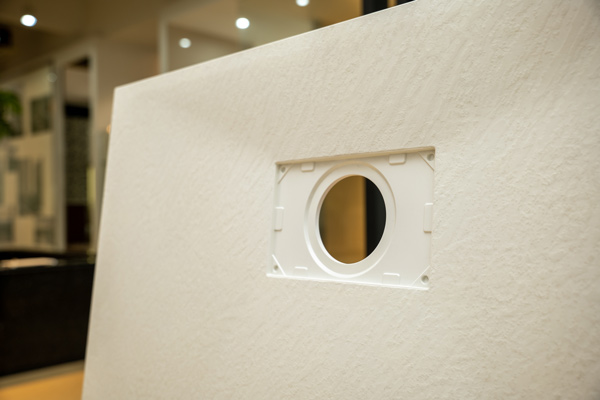
Advantages
- Exceptional Durability: The strength of SMC shower trays is a major selling point. Made from a blend of polyester resin, glass fibers, and fillers, these trays are incredibly durable and can withstand substantial weight and pressure without cracking or bending. If you need a shower tray that will stand the test of time and handle daily wear and tear, SMC is a solid choice.
- Chemical and UV Resistant: SMC trays are highly resistant to chemicals and UV light. This means they won’t discolor or weaken over time, even with regular exposure to harsh cleaning agents or sunlight. Their durability is matched by their ability to maintain their appearance and structural integrity.
- Environmentally Friendly: The manufacturing process for SMC shower trays is more eco-friendly compared to other types of shower base materials. It uses less energy and produces fewer emissions, making it a more sustainable choice for environmentally conscious homeowners.
Disadvantages
- Heavy: SMC trays can be quite heavy due to their robust construction. This added weight can make installation more challenging, especially compared to lighter shower tray materials like acrylic, which can be easier to handle and install.
- Cold Underfoot: While SMC trays are strong, they don’t provide much in terms of warmth. They can feel a bit cold underfoot, which might be a downside if you prefer a warmer surface when stepping out of the shower.
- Limited Design Options: SMC trays typically come in a more limited range of designs and colors. If you’re looking for a high level of customization to match a specific bathroom decor, you might find the choices a bit restricted with SMC compared to more versatile materials.
Stone Resin Shower Trays
Stone resin is a premium material that combines crushed stone with resin, creating a shower tray that is both luxurious and functional.
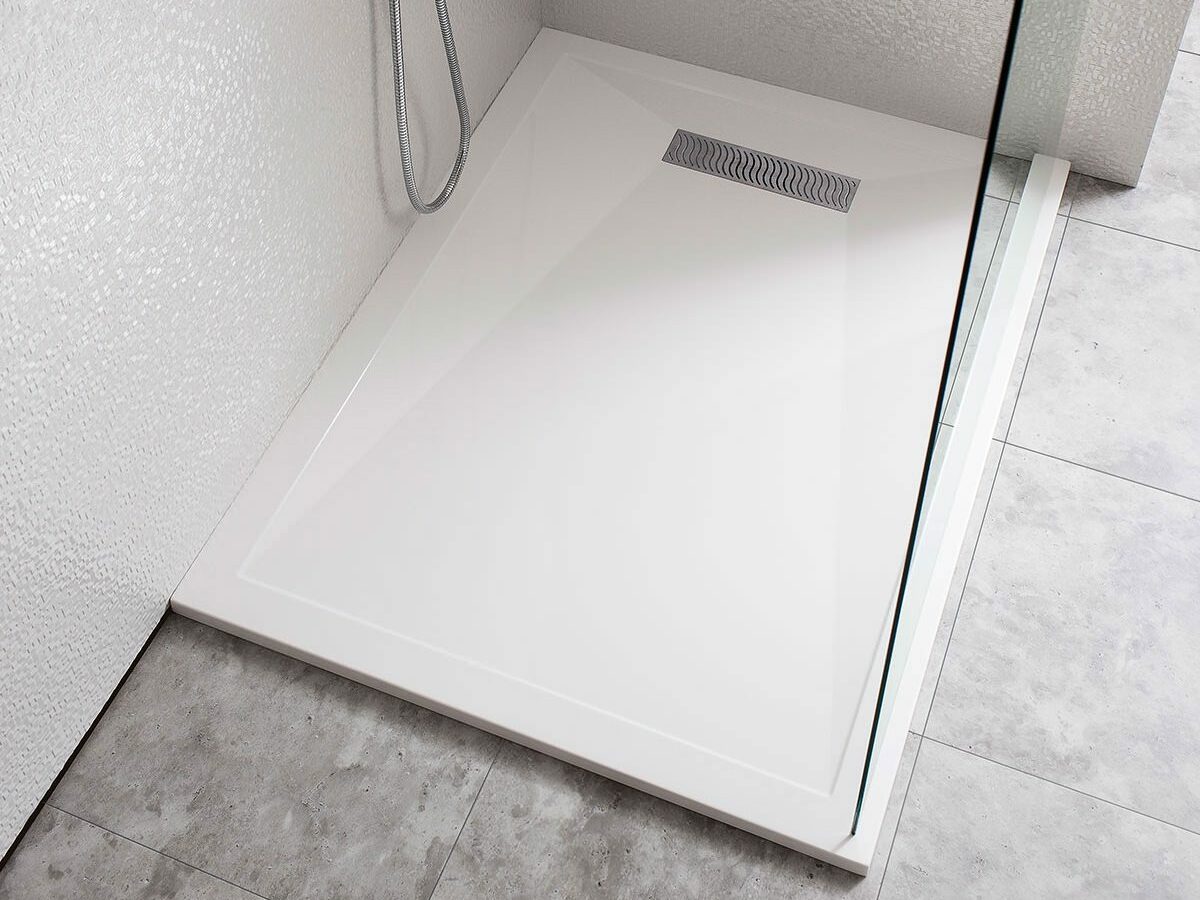
Advantages
- Exceptional Durability: Stone resin trays are built to last. They are highly resistant to cracks, chips, and other types of damage, making them a robust choice for long-term use. Additionally, they provide a solid, substantial feel underfoot, enhancing the overall luxury of your shower experience.
- Thermally Efficient: These trays retain heat exceptionally well. This means you won’t experience a cold shock when stepping into the shower, as the surface stays warm and comfortable. Stone resin also offers a sleek, modern look that can elevate the style of any bathroom.
- Stylish Appearance: With their contemporary design and high-quality finish, stone resin trays can significantly enhance your bathroom’s aesthetic. They provide a clean, sophisticated look that complements a range of bathroom styles.
Disadvantages
- Higher Price Tag: Stone resin shower trays come with a premium price. They can be quite expensive, making them less suitable for those on a tight budget. The investment is often justified by their durability and appearance, but it’s something to consider if cost is a major factor.
- Heavy: These trays are heavier than many other options, which can make installation more cumbersome. The extra weight might require additional support or professional installation, adding to the overall cost and effort.
- Not Invincible: Despite their durability, stone resin trays are not impervious to damage. Heavy impacts can cause damage, and if the surface gets scratched, repairs might need to be handled by a professional to restore its original look and functionality.
Shower Trays Engineered for Large-Scale Projects
As a professional shower tray manufacturer, KJ Bath helps you reduce supplier complexity and installation costs with our project-ready solutions.
Natural Stone Shower Trays
Natural stone shower trays are the epitome of luxury. Made from materials like marble, granite, or slate, these trays are all about making a statement.
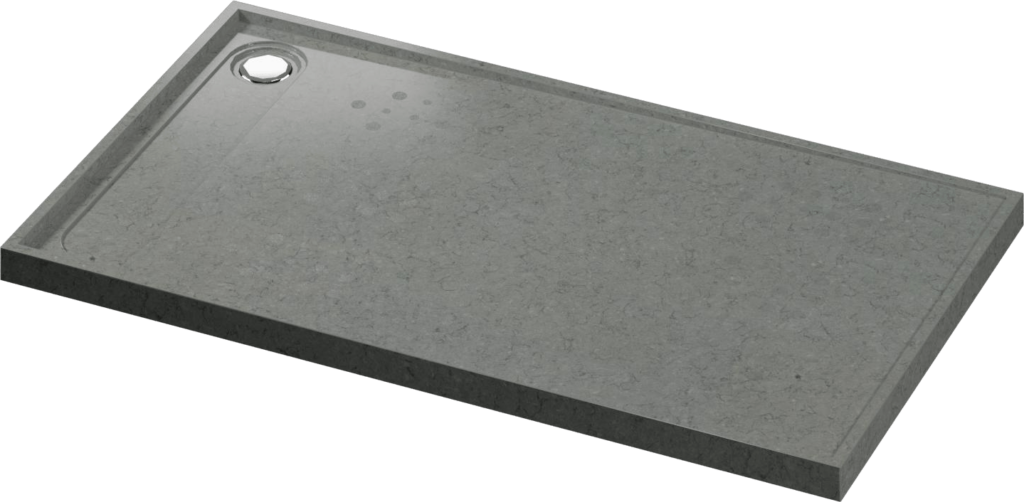
Advantages
- Stunning Aesthetic: Natural stone shower trays are truly a work of art. Each tray is unique, featuring its own natural patterns and colors. If you want a shower tray that doubles as a beautiful focal point in your bathroom, natural stone is an excellent choice.
- Durability and Heat Retention: These trays are extremely durable and offer impressive heat retention. This means the surface remains warm and comfortable, enhancing your shower experience. The robust nature of natural stone ensures that it stands up well to daily use.
- Eco-Friendly: Being a natural material, stone is an ideal choice for those aiming to create an eco-friendly bathroom. It’s a sustainable option that has minimal environmental impact compared to synthetic types of shower tray materials.
Disadvantages
- High Cost: Natural stone is expensive—very expensive. The cost reflects not just the material but also the intricate craftsmanship involved in shaping and finishing each tray. It’s a significant investment, so it might not fit every budget.
- Maintenance Intensive: Natural stone requires more upkeep. Its porous nature means it can absorb water and stains if not properly sealed. Additionally, if you live in an area with hard water, you might face issues with mineral deposits that can dull the stone’s surface over time. Regular maintenance and sealing are essential to keep the tray looking its best.
Ceramic Shower Trays
Ceramic shower trays have been around for ages and are a tried-and-true option for many homeowners.
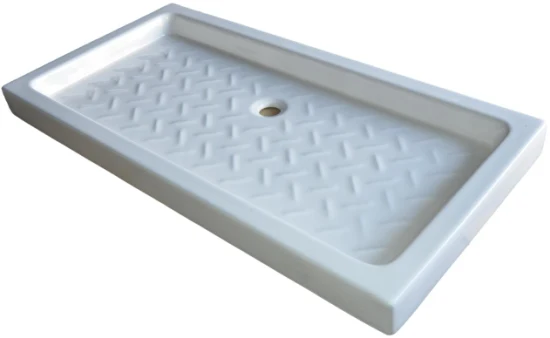
Advantages
- Easy to Clean: Ceramic trays are a breeze to maintain. Their smooth, glossy surface resists stains and water, making them a low-maintenance option. Cleaning up spills or soap scum is quick and straightforward, saving you time and effort.
- Affordable: Ceramic trays are budget-friendly, which is great if you’re looking to keep costs down. They offer a cost-effective solution without compromising on quality or functionality.
- Classic Appearance: With a timeless look, ceramic trays can fit seamlessly into both modern and traditional bathrooms. Fired at high temperatures, they are also heat-resistant, making them durable and capable of withstanding the rigors of daily use.
Disadvantages
- Slippery When Wet: One downside is that ceramic trays can be slippery when wet. This could pose a safety risk, so you might need to use non-slip mats or consider additional safety features to prevent accidents.
- Prone to Chipping and Cracking: Ceramic trays are susceptible to chipping and cracking, especially if something heavy is dropped on them. While they are generally durable, their surface can be damaged relatively easily.
- Not Warm to the Touch: Although ceramic trays are heat-resistant, they can still feel chilly when you step onto them. This lack of warmth might be noticeable, particularly in colder climates or during the winter months.
Steel Shower Trays
Steel shower trays are another option worth considering, especially if you’re looking for something durable and long-lasting.
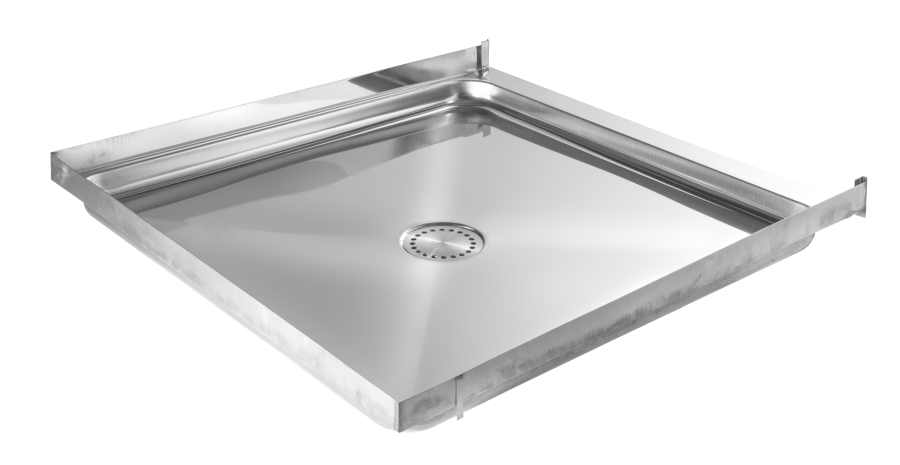
Advantages
- Incredibly Strong: Steel trays are exceptionally robust, capable of withstanding significant weight and impact without bending or cracking. Their strength makes them a reliable choice for high-traffic bathrooms or for households with heavy usage.
- Low Maintenance: These trays are resistant to chemicals and stains, which makes them a low-maintenance option. Their durability means they stay looking clean and fresh with minimal effort.
- Fire-Resistant and Recyclable: Steel trays are not only fire-resistant but also recyclable, aligning with eco-friendly practices. If sustainability is important to you, steel offers a practical choice. Additionally, they come in a variety of finishes, allowing you to choose one that complements your bathroom’s style.
Disadvantages
- Cold and Noisy: Steel trays can feel quite cold underfoot and tend to amplify the sound of water hitting the surface. If you prefer a warmer, quieter shower experience, steel may not be the ideal choice.
- Prone to Denting: Although steel is durable, it is prone to denting. Once damaged, repairing steel trays can be challenging, and the dents can impact both the functionality and appearance of the tray.
- Heavy: Steel trays are relatively heavy, which can complicate installation. The extra weight might require additional support or professional help to ensure proper fitting and installation.
Conclusion
So, which is the best type of shower tray material for you? It really depends on your priorities. If you’re after affordability and ease of maintenance, acrylic or ceramic might be your best bet. If you’re looking for something luxurious and long-lasting, stone resin or natural stone could be the way to go. And if durability is your main concern, steel or SMC trays might be worth considering. Each material has its own strengths and weaknesses, so take your time to weigh the pros and cons before making your decision.


